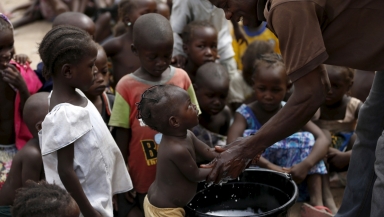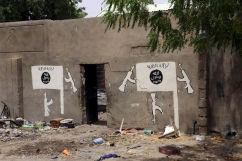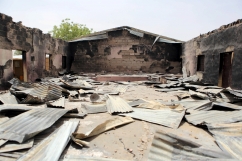Nearly a quarter of a million children are suffering from life-threatening malnourishment in Boko Haram's home state of Borno in Nigeria, and one in five are at risk of dying, UNICEF said on Tuesday.
The UN children's agency said that 244,000 children are suffering from severe acute malnutrition, and 20 per cent of these – 48,000 – will die if they do not receive treatment.

UNICEF said there has been a large rise in the number of suffering children in recent years. In 2013, 35,000 had severe acute malnutrition and in 2014 that figure rose to 57,500, but was still far below the latest estimates from 2016.
"Some 134 children on average will die every day from causes linked to acute malnutrition if the response is not scaled up quickly," said Manuel Fontaine, UNICEF's regional director for western and central Africa, who recently returned from Borno.
Fontaine said people in Borno had lost their livelihoods and been cut off from trade networks and healthcare, with many unable to access clean water, factors he said had exacerbated the health problems faced by children.
He added that UNICEF cannot reach around 2 million people in the northeast due to insecurity and poor infrastructure.
More than 15,000 people have been killed and at least 2 million displaced by Boko Haram's insurgency in Nigeria. The group still stages suicide bombings in northeast Nigeria and neighbouring Cameroon, Niger and Chad.
The agency estimates that around 2.5 million children suffer from severe acute malnutrition in Nigeria, Africa's most populous nation with around 180 million inhabitants, and is supporting treatment for the condition in 12 of its 36 states.
Last month, medical charity Médecins Sans Frontieres said more than 1,200 people had died from starvation and illness at an northeastern aid camp that houses people fleeing Boko Haram.
The militant group, whose name means 'Western education is forbidden', once controlled large swathes of northeast Nigeria, but most of it was recaptured last year by the Nigerian army and troops from neighboring countries.
But though its influence has decreased, Boko Haram still remains active. More than 200 girls kidnapped by militants from their school in Chibok, Borno state, in 2014 are still missing.
Additional reporting by Reuters.
















